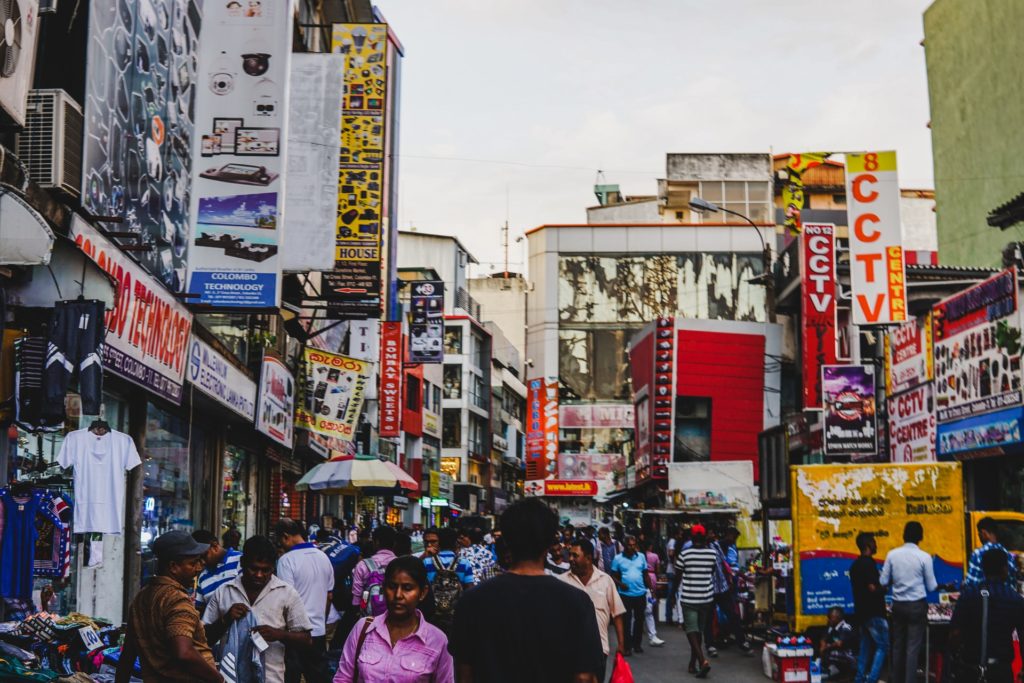“Sri Lanka is taking a leap forward today as the cabinet approves to establish a committee propose policy on BlockChain Technology, Digital Banking & Crypto Mining,” reads one tweet from Minister of Development Coordination and Monitoring, and the State Minister of Digital Technology and Enterprise Development, Namal Rajapaksa.
It’s a clear indication that Sri Lanka is serious about crypto, or at least it appears to be. But what does this mean? What can we expect out of this? Right now, there are more questions than answers. Here’s what we know so far.
What the crypto committee entails
“The necessity of developing a system that integrates digital banking, blockchain technology, and cryptocurrency mining and other essential services has been identified to facilitate the creation of a digital business environment,” states the Department of Government Information.
The proposed committee has already been appointed by the minister and includes the following eight members,
- Sujeewa Mudalige – Chairman at PWC Sri Lanka
- Viraj Dayaratne – President’s Counsel
- Rajeeva Bandaranayake – CEO at the Colombo Stock Exchange
- Dharmasri Kumarathunge – Director of Payments & Settlements at Central Bank Of Sri Lanka
- Jayantha Fernando – Director at ICTA
- Sandun Hapugoda – Director of Mastercard Sri Lanka & Maldives
- Air Commodore (Retd) TGJ Amarasena – CEO at Sri Lanka CERT
- Milinda Rajapaksha – Convener to the Committee & Committee Member
Thereby, the appointed committee will include both government and private sector personnel who will advise the Cabinet on possible regulations, acts, and laws with regards to blockchain, cryptocurrency, and digital banking. As such, the committee is to propose a framework for Sri Lanka taking inspiration from other countries that have already taken steps on this front. Additionally, the committee is said to study existing regulations of other countries around anti-money laundering, terrorism financing, Know Your Customer (KYC) processes, and the like.
That’s (not) all folks!
The committee is only part of the government’s latest attempt at pushing digital in the country. The Daily FT reports that the minister had also proposed allowing startups and entrepreneurs working on digital banking and blockchain, to establish an operating base in Sri Lanka. This includes a “special schema of visas for such companies and entrepreneurs.”
There’s also the idea of establishing a “Blockchain Academy” as a means of upgrading the skills and the know-how on blockchain among the youth.

The establishment of the “Sri Lanka Blockchain Centre” is another one on the list. This will fall under the purview of the State Ministry of Digital Technology and Enterprise Development with the Board of Investment (BoI) and the ICTA as key stakeholders.
Crypto’s energy problem
The proposal also mentions introducing a mechanism to interested blockchain companies to help with power requirements, while ensuring the load on the main grid is reduced. This is to be done under the purview of the Ministry of Power and State Ministry of Solar Power, Wind and Hydro Power Generation Projects Development and the CEB.
Issues around energy consumption are one of crypto’s biggest challenges. Though as of late, there has been a lot of push towards renewable energy alternatives. Some estimate that in the US alone, bitcoin mining is more than 50% powered by renewable energy. That being said, reports of rising frustration over cryptocurrency energy drain aren’t unfounded. It will be interesting to see how Sri Lanka will navigate this issue.
How other countries go about crypto
While China is going hard at cracking down on crypto mining, the situation is quite different in other parts of the world. For instance, Sweden is considering a move to a digital currency. Its central bank is currently trialing a pilot project aiming to introduce an electronic Krona that’s based on the same blockchain technology. Markets like the UK, France, and New Zealand already have anti-money laundering regulations set in place within the country’s legislature.
From a broader perspective, the global crypto ranking 2021 report from Coincub suggests that the US, Canada, and Singapore currently lead the list of countries in terms of crypto friendliness.

United States
While investing or trading crypto is well established in the US, it will have implications on your tax situation. The Internal Revenue Service identifies crypto assets as property as opposed to currency. This means similar tax rules on other properties that can be traded for profit also applies to crypto.
You’re not taxed for holding/buying crypto. But you will be taxed on the transaction you make and you have to declare your trading to the IRS. Crypto mining is also taxed in the US.
In terms of adoption, approximately 11.2% of the 331 million population own crypto. This is largely helped by the fact that reputed global brands like Microsoft and Starbucks accept bitcoin payments
Canada
Canada follows a similar approach to that of the US as far as legality and taxation are concerned. Coincub points out that several of the country’s leading banks have already trialed blockchain-based identity verification mobile apps. Other financial institutions are also looking at decentralized finance for remittances, loans, and stablecoins among others.
A little over 3% of the 37.3 million population owns crypto in Canada.
Singapore
The Singaporean government recognizes crypto as legitimate and plays a leading role in crypto regulation. The country has an established regulatory body which is the Monetary Authority of Singapore (MAS). The MAS is actively working to regulate cryptocurrency exchanges while even exploring the idea of forming its own e-money.
In general, the country is seen as progressive in terms of accepting crypto. There are about 32 cryptocurrency exchanges based in Singapore along with 10 bitcoin ATMs.

What of Sri Lanka’s crypto ambitions?
Right now, it’s unclear how exactly these proposed initiatives around crypto will play out and how they will impact the country. It will be interesting to see how the authorities will take inspiration from other countries on how to implement crypto in Sri Lanka. Time will tell if anything meaningful will materialize or if this ends up being another buzzword play. Here’s hoping for the former.







GIPHY App Key not set. Please check settings